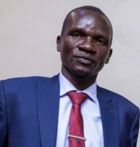BY MOSES LEMI TABAN DADA
As the countries of the world, both friends and foes, keep turning their critical eyes on the proposed elections in the Republic of South Sudan, at present, so little is known about the prospects of general elections in this country. As a result, a profound sense of uncertainty has developed, and therefore, poses grave concern, regarding the possibility and even the stability as well as the fairness of all electoral processes in the Republic of South Sudan.
However, before throwing a gob of doubts on this matter, what is well worth knowing about this country is that as the world’s youngest nation, the Republic of South Sudan has been marred by a series of civil wars, leading to protracted political instability and economic meltdown. In this respect, the proposed elections have been conceived as a crucial step towards coagulating the country’s peace and stability since they will help lay a strong foundation for a democratic, free, peaceful, and prosperous South Sudan.
The looming cynicism surrounding the South Sudanese elections can be attributed to several factors that are threatening to undermine electoral processes. Chief among these titanic forces are persistent intercommunal conflicts, lack of political will among major parties to the R-ARCSS to implement all pending provisions of the agreement, and the ongoing Tumaini Peace Initiative.
These insecurity-related cases and political developments have stimulated a significant chunk of factors that may hinder the timely conduct of credible, free, and fair elections in the Republic of South Sudan. Although the prime object of the 2018 Revitalized Agreement on the Resolution of Conflict in the Republic of South Sudan (R-ARCSS) is to de-escalate hostilities through the establishment of a unity government and subsequently end its transition by conducting credible elections, the implementation of critical aspects of this agreement such as the Security Arrangements are sometimes being compromised, causing fraught and impediments to the proposed elections.
Deprived physical infrastructure and the logistical capacity are also questionable. Currently, many parts of the country are inaccessible due to poor road networks. The financial capacity of electoral institutions is insufficient. And according to the recent report of the United Nations Mission in South Sudan (UNMISS), “Difficulties in establishing polling stations and ensuring that they are equipped with the materials needed for voting is inviable”. Consequently, this logistical nightmare could disenfranchise many South Sudanese voters, particularly those in remote areas, and such a situation will hinder the election’s inclusivity.
Also, the credibility of the electoral processes themselves is at stake due to potential political manipulation and voter intimidation. Since the beginning of 2024, several reports from multiple human rights watchdogs keep proliferating, exposing cases in which some political actors exert their undue influences over the potential electorate, by customizing patronage politics. Such a practice will not only undermine democratic principles but will also erode the public trust in the electoral system.
Despite these challenges, the international community should remain committed to supporting the Government of South Sudan through its electoral institutions to ensure that credible, free, and fair elections are conducted in the Republic of South Sudan. Luckily, various international bodies such as the African Union, the Intergovernmental Authority on Development (IGAD), and the East African Community as well have already thrown their full support in the areas of observation and technical assistance to ensure that fair and transparent elections come to light in the Republic of South Sudan.
While the prospects of South Sudan’s 2024 elections may appear to be fading, it is imperative for national leaders, civil society, and international partners to work collaboratively to address the underlying issues that threaten the integrity of the proposed elections. Only when a concerted effort has been put together to strengthen electoral institutions to uphold democratic principles and values will the Republic of South Sudan experience credible, free, fair, and transparent elections in December 2024.
About the author
Moses Lemi Taban Dada is a South Sudanese Master’s student of Political Science at the School of Social and Economic Studies, University of Juba. He specializes in comparative politics and can be reached via Moses413651@gmail.com.
The views expressed in ‘opinion’ articles published by Radio Tamazuj are solely those of the writer. The veracity of any claims made is the author’s responsibility, not Radio Tamazuj’s.




